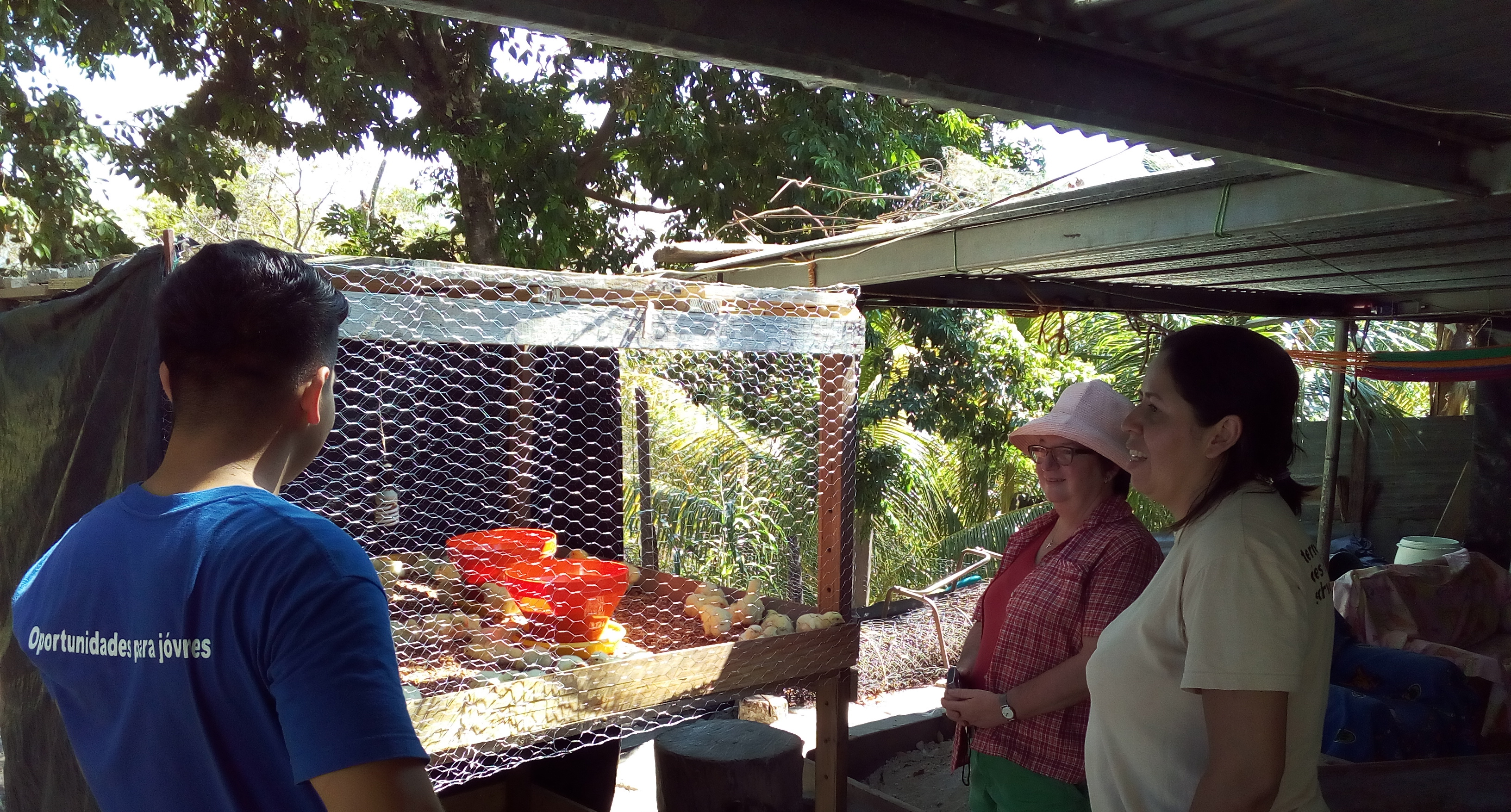This is an Interview with Sandra Ramirez, National Coordinator, Terre des hommes Switzerland
à propos: How is the NGO Terre des hommes involved in migration-related projects in El Salvador?
Sandra Ramirez: For more than 40 years, El Salvador has been affected by the departure of migrants who mainly travel to the United States through Guatemala and Mexico, fleeing poverty or violence. Youth unemployment reaches 13.6% in the country and the northern, mountainous region of Chalatenango is greatly affected. This area was particularly devastated by the civil war and is still suffering the economic consequences. At Terre des hommes, we support a local NGO called CORDES (Fundación para la Cooperación y el Desarrollo Comunal de El Salvador), which is carrying out a project to increase opportunities for young people in Chalatenango. This organization identifies income-generating activities in the region and provides young job seekers with the adapted vocational trainings to increase their entrepreneurial skills. Despite the lack of job opportunities, we are convinced that these youngsters can have a future in Chalatenango. The climate and land are suitable for farming and there is a pool of agricultural knowledge among the local population. Besides, CORDES accompanies these young people with a psychosocial approach to help them reach their goals while maintaining their self-esteem and strengthening their participation in community development.
à propos: Don’t you think that migration can contribute to peace in your country? For example, when Salvadorans increase their opportunities to earn income in the United States and later invest in El Salvador to open a business?
SR: While respecting the right to free movement, I don’t think that migration is a good option. Rather than leading to peace, I think it has more negative consequences than benefits for our country.
First of all, few are those who come back to El Salvador, as it is linked to social stigmatization and the notion of failure. Instead, they encourage their loved ones to migrate as well, notably by spreading a an attractive image of their new lives, which does not always reflect reality.
Furthermore, migration fuels human trafficking, which is a huge problem. Some migrants encounter the same level of violence as in El Salvador or even worse along their way. Many people disappear and their families are left without information. As far as their economic situation is concerned, there is often no improvement either, as some live in very precarious conditions in camps in Mexico or the United States. Not everyone succeeds in the United States and in this case, debts incurred with family members to finance the journey are not reimbursed, resulting in a loss of domestic capital.
Another significant threat to peace is family disintegration. It is very common that men leave without their wives and children. In worst cases, both parents leave and children are left with no education or financial support. They are then more likely to join gangs or become vulnerable to recruitment by criminal groups who pose themselves as new family. Hence, it becomes a vicious circle. By wanting to escape violence, you rather feed it.
à propos: What do you think of the agreement that was signed in September 2019 between the US and El Salvador consisting of sending asylum seekers back to El Salvador?
SR: I think that people should be free to move wherever they want to. This agreement is very problematic because many asylum seekers from El Salvador, Honduras or Guatemala are now stuck in Mexico, unable to cross the border. They stay in very precarious conditions, sometimes in camps, risking becoming victims of violence or prostitution.
We have to protect people from being forced into such situations by addressing the root causes of poverty and violence. Programs such as the one of CORDES can contribute to raise hope and self-esteem of the disadvantaged youth. We have witnessed some success stories of young people who, thanks to training and micro-enterprises, have been able to generate income and become completely independent from their families. They are proof of the existing opportunities in Chalatenango and a model for future generations.


